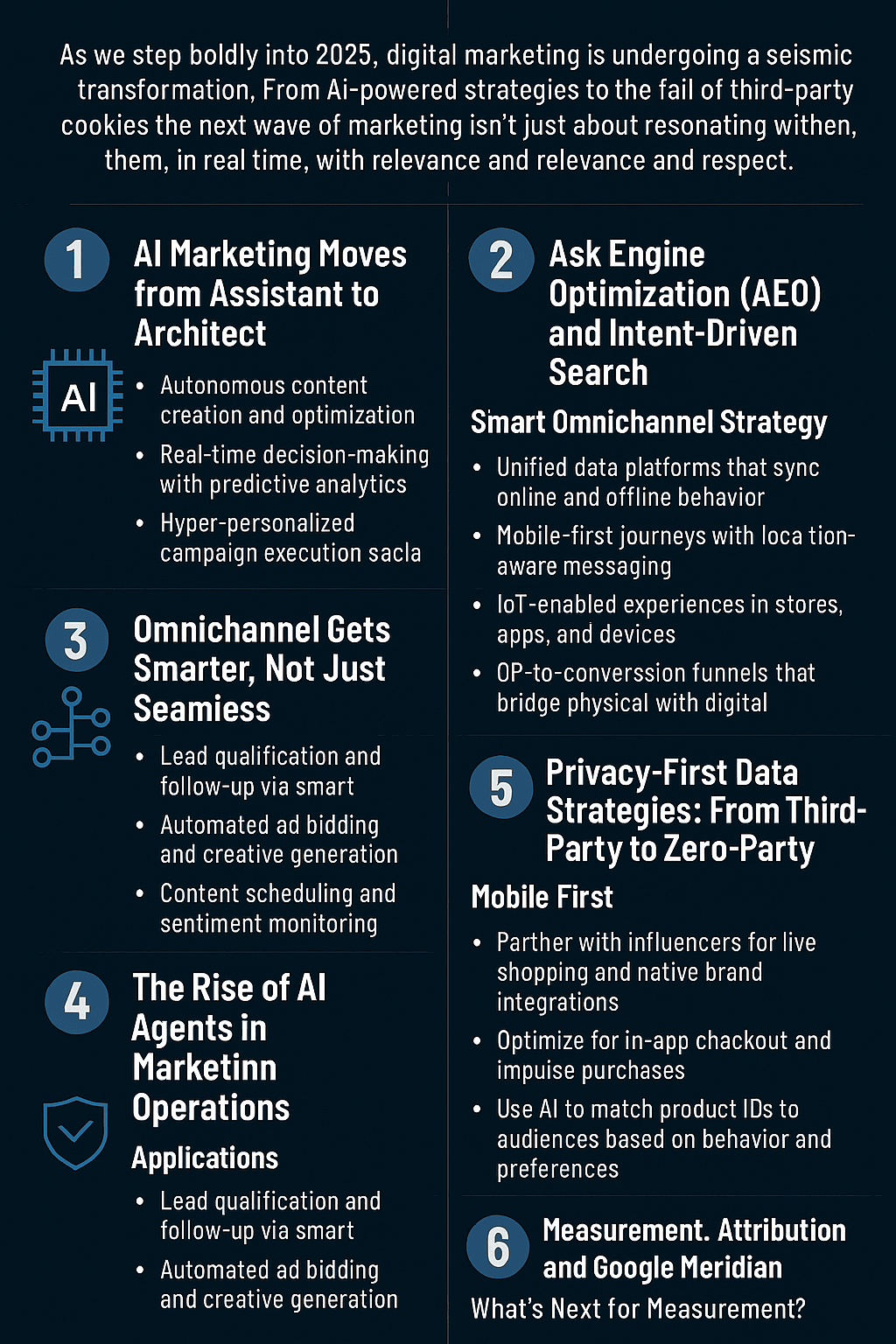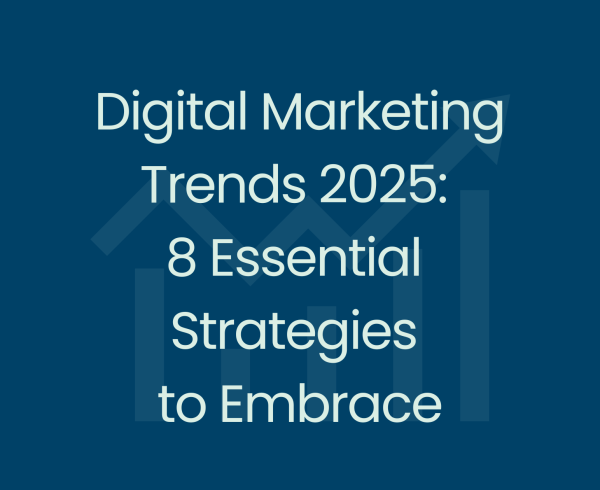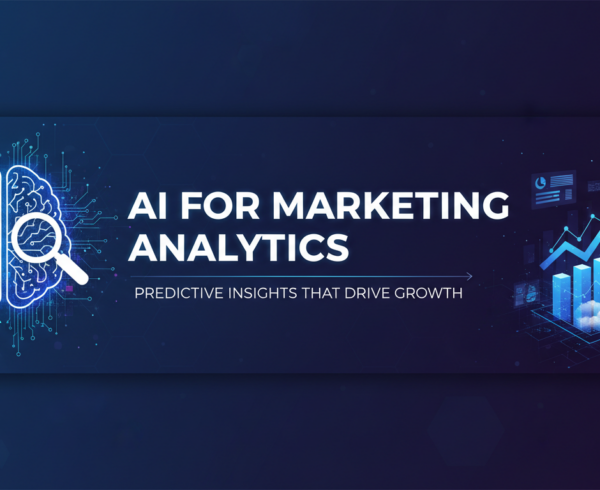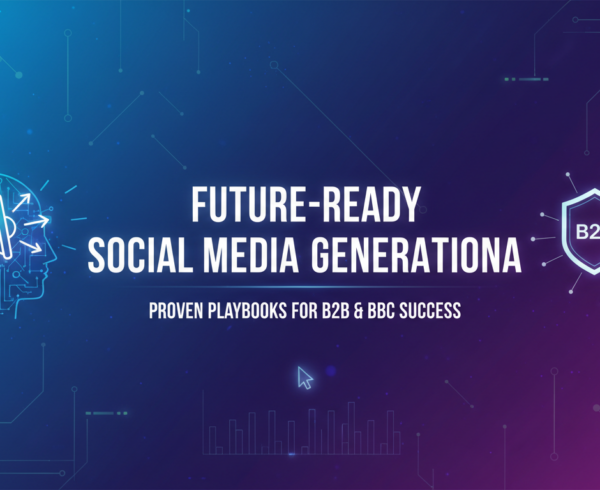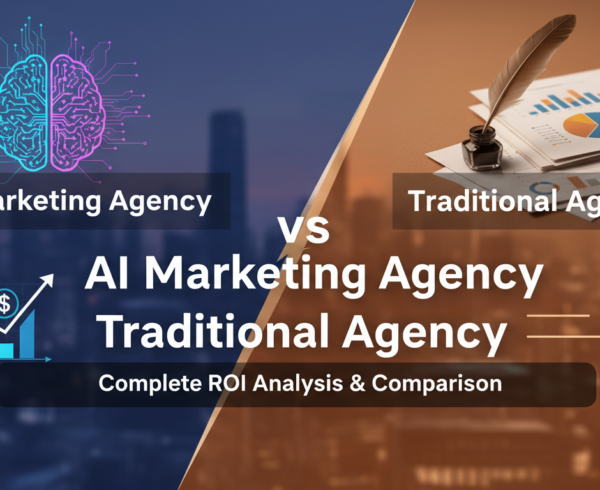Digital Marketing 2025: The New Rules of Engagement
As we step boldly into 2025, digital marketing is undergoing a seismic transformation. From AI-powered strategies to the fall of third-party cookies, the next wave of marketing isn’t just about reaching audiences—it’s about resonating with them, in real time, with relevance and respect.
This guide explores the 7 defining trends that will shape how brands attract, engage, convert, and retain their audiences in 2025 and beyond.
1. AI Marketing Moves from Assistant to Architect
Artificial Intelligence is no longer a tool—it’s the foundation of modern marketing architecture. In 2025, over 80% of enterprises are expected to deploy GenAI tools across marketing operations, fueling a projected $10 billion surge in enterprise software revenue.
Key AI-Powered Capabilities:
Autonomous content creation and optimization
Real-time decision-making with predictive analytics
AI agents for customer service, CRM, and marketing ops
Hyper-personalized campaign execution at scale
Stat to Note: Brands leveraging AI for personalization are 50% more likely to surpass revenue targets.
2. Ask Engine Optimization (AEO) and Intent-Driven Search
Search is evolving—from keyword queries to question-and-answer experiences. The rise of Google’s Search Generative Experience (SGE) and voice-powered assistants are rewriting the SEO rulebook.
AEO in Practice:
Create structured, FAQ-style content that answers specific user intents
Optimize for AI-generated answers, not just rankings
Use schema markup and structured data for discoverability
Pro Insight: SEO success in 2025 means answering questions before your customers ask them.
3. Omnichannel Gets Smarter, Not Just Seamless
The line between digital and physical experiences is blurring fast. Brands must orchestrate smart omnichannel ecosystems—where every touchpoint is connected, contextual, and consistent.
Smart Omnichannel Strategy Includes:
Unified data platforms that sync online and offline behavior
Mobile-first journeys with location-aware messaging
IoT-enabled experiences in stores, apps, and devices
QR-to-conversion funnels that bridge physical with digital
[Visual Suggestion: Flowchart of a customer journey moving across physical store, app, and social]
4. The Rise of AI Agents in Marketing Operations
Think beyond automation—2025 marks the rise of AI Agents: autonomous systems managing workflows, campaigns, and real-time decision-making.
AI Agent Applications:
Lead qualification and follow-up via smart chatbots
Automated ad bidding and creative generation
Content scheduling and sentiment monitoring
Predictive product recommendations
These agents free marketers from the tactical so they can focus on strategic storytelling and customer experience.
5. Privacy-First Data Strategies: From Third-Party to Zero-Party
In a cookieless future, data is no longer harvested—it’s offered. Consumers now expect transparency, control, and value in exchange for their information.
Winning with Privacy:
Build first-party and zero-party data (data shared intentionally by users)
Use gamified quizzes, surveys, and preference centers
Ensure privacy compliance across global regulations (GDPR, CCPA, PDPA)
Stat Watch: 56% of CMOs are increasing budget allocation for privacy-first tech in 2025.
6. Social Commerce Becomes the Storefront
Social media is now the storefront. With shoppable posts, livestream selling, and seamless checkout experiences, platforms like TikTok, Instagram, and YouTube are turning engagement into instant transactions.
Social Commerce Best Practices:
Partner with influencers for live shopping and native brand integrations
Optimize for in-app checkout and impulse purchases
Use AI to match products to audiences based on behavior and preferences
Mobile Tip: Design for thumb-stopping moments and scroll-stopping value.
7. Measurement, Attribution, and Google Meridian
Say goodbye to vanity metrics. Google Meridian is ushering in a new era of privacy-safe, AI-enhanced marketing mix modeling (MMM).
What’s New in Measurement:
Cross-channel attribution that respects user privacy
Customizable frameworks for different verticals
Advanced budget reallocation and scenario modeling
Long-term performance analysis, not just campaign metrics
Takeaway: 2025 marketers must measure what matters—impact, not impressions.
Preparing for What’s Next
Success in 2025 requires more than new tools—it demands a new mindset.
5 Questions to Future-Proof Your Strategy:
Are you using AI to enhance strategy or only to automate tasks?
Do your SEO efforts prioritize user intent over keywords?
Is your customer data strategy built on trust and transparency?
Can you deliver consistent brand experiences across every touchpoint?
Are your measurement frameworks built for long-term growth?
Final Thought:
The digital marketing landscape in 2025 rewards those who adapt quickly, experiment boldly, and put people—not platforms—at the center of their strategy. The brands that win will be those that combine AI precision with human resonance.
The future is already unfolding. Are you optimized for it?
